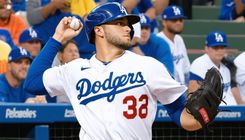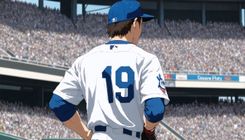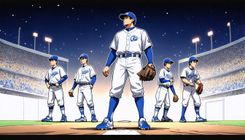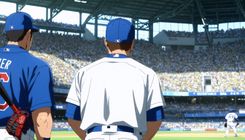MLB Power Rankings Reset Post Trade Deadline
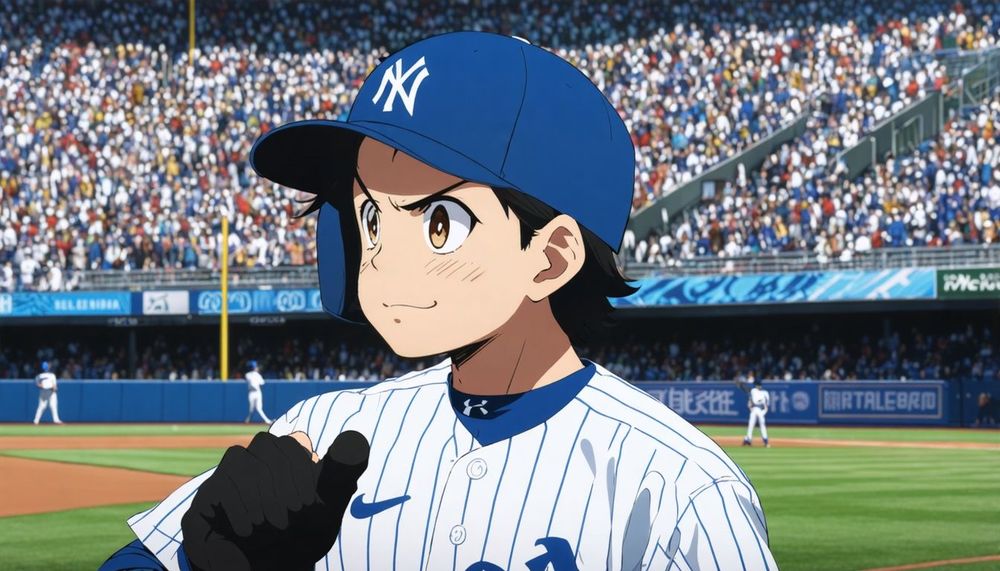
As the dust settles on one of the busiest trade deadline days in recent memory, it's time to reassess the MLB landscape for the final two months of the season with the first weekly power rankings since the line between buyers and sellers became evident. Teams such as the Los Angeles Dodgers and New York Mets boast considerable talent on paper, supported by massive payrolls. However, the 2023 season has yet to yield a clear No. 1 team, illustrated by the fact that ten different teams have held the top spot in these rankings up to this point. This week's power rankings will factor in recent performance as well as the outcomes of each team’s actions—or inactions—at the trade deadline. Consequently, certain teams may witness a drop despite strong weeks or an ascent following subpar series. With 19 teams classified as either buyers or holders at the trade deadline and just 12 spots available for postseason contention, significant sorting remains in the weeks ahead as the playoff picture takes shape.
30. Colorado Rockies (30-81): The Rockies, typically passive during the trade deadline, embraced a seller's role this season, marking a step toward future improvement. They traded Ryan McMahon's remaining contract while also dealing relievers Jake Bird and Tyler Kinley for prospects. Despite not implementing a complete rebuild, this marks a necessary transition from consistency in mediocrity to a more promising future.
29. Washington Nationals (44-67): The Nationals offloaded several players, including Michael Soroka and Kyle Finnegan, without compromising their core, notably ace MacKenzie Gore. With seven games remaining against the Phillies and six against the Mets, they aim to play spoiler in the NL East.
28. Minnesota Twins (52-59): After trading an astounding ten players off their 26-man roster, the Twins have a significantly restructured roster. Acquiring prospects such as Austin Martin and Edouard Julien while moving controllable relievers Jhoan Durán and Griffin Jax indicates a larger shift toward rebuilding rather than merely resetting. There is speculation about potential offseason moves, particularly surrounding ace Joe Ryan, who was mentioned in trade discussions.
27. Atlanta Braves (47-63): General Manager Alex Anthopoulos opted not to trade impending free agents Marcell Ozuna and Raisel Iglesias, stating to reporters that he would not dispose of players simply to offload salaries. Finding themselves fourth in the NL East with a negligible playoff chance, Anthopoulos's strategy raises eyebrows amid a struggling season.
26. Chicago White Sox (42-70): The White Sox were unable to find a market for Luis Robert Jr. but converted marginalized players such as Adrian Houser into prospects like Curtis Mead. Flipping fourth outfielder Austin Slater to the Yankees for pitching depth marked a productive trade deadline, focusing the final two months on evaluating their younger talents.
25. Pittsburgh Pirates (48-64): In an unusual move, the Pirates chose not to trade away impending free agents Tommy Pham and Isiah Kiner-Falefa while successfully trading All-Star closer David Bednar and third baseman Ke'Bryan Hayes for prospects. The acquisition of catcher Rafael Flores enhances their minor league talent.
24. Oakland Athletics (49-65): The Athletics acquired highly sought after shortstop Leo De Vries in a significant trade with the Padres, which greatly bolsters their prospect pool. Although they lack a definitive replacement for Mason Miller in the ninth inning, the depth in their farm system is encouraging for the future.
23. Arizona Diamondbacks (53-59): The Diamondbacks chose to trade Eugenio Suárez, Josh Naylor, and Merrill Kelly while holding onto pitcher Zac Gallen, hinting at a focus on future competitiveness. They aim to bolster their starting rotation during the upcoming offseason after dealing Jordan Montgomery.
22. Baltimore Orioles (51-61): The Orioles traded various pieces, most notably Ryan O'Hearn and Ramón Laureano, while keeping starter Zach Eflin on the injured list. They maintain a talented core but will need significant roster adjustments, mainly concerning their pitching staff, heading into the offseason.
21. Los Angeles Angels (54-58): Consistent with their season, the Angels took a perplexing approach at the trade deadline. Rather than unloading rental players, they acquired relievers Andrew Chafin and Luis García, along with infielder Oswald Peraza. Though the record is an improvement from last year's performance, playoff aspirations seem dim.
20. St. Louis Cardinals (56-57): The Cardinals made notable trades, moving Ryan Helsley and Steven Matz while bringing in promising prospects, including shortstop Jesus Baez. Their attempts to capitalize on controllable players will be crucial as they navigate future team strategies post-John Mozeliak era.
19. San Francisco Giants (56-56): With a lackluster July record prompting a seller strategy, the Giants traded away relievers Camilo Doval and Tyler Rogers. They also parted with outfielder Mike Yastrzemski, positioning outfield prospects Grant McCray and Luis Matos for future roles.
18. Tampa Bay Rays (55-58): The Rays engaged in their usual mix of acquisition and liquidation at the trade deadline. They revamped their catching platoon and added autumn reinforcements, with an eye on making a considerable playoff push despite holding onto expensive veterans Yandy Díaz and Brandon Lowe.
17. Cincinnati Reds (58-54): The Reds reinforced their clubhouse by acquiring Zack Littell, third baseman Ke'Bryan Hayes, and outfielder Miguel Andújar, all while fighting for a postseason berth. Their challenging schedule presents a difficult road ahead to secure playoff positioning starting with a series against the Cubs.
16. Kansas City Royals (56-56): The Royals opted to buy at the deadline, adding outfielders Mike Yastrzemski and Randall Grichuk, along with a pair of pitchers. Currently vying for the third AL wild card position, the team trails by 3.5 games in a closely contested race.
15. Cleveland Guardians (56-55): The Guardians were relatively quiet, moving only injured pitchers Shane Bieber and Paul Sewald while acquiring a top pitching prospect in the process. The uncertainty surrounding closer Emmanuel Clase adds to their challenges, yet they maintain a steady bullpen presence with Cade Smith.
14. Miami Marlins (55-55): Demonstrating an impressive performance from June to July, the Marlins show promise as a rising contender. Despite trading away some players, they retained crucial arms like Sandy Alcantara, ensuring a strong rotation for the coming season.
13. Texas Rangers (58-55): Solidifying their buyer status, the Rangers upgraded their pitching staff with new acquisitions while seeking improvements from underperforming players. The current roster holds promise for postseason contention, contingent on their offensive development.
12. New York Yankees (60-52): The Yankees bolstered their bullpen significantly by acquiring David Bednar and Camilo Doval. The return of Luis Gil has provided necessary depth, although recent performances raise concerns. The team aims for a strong finish bolstered by acquisitions from the trade deadline.
11. Houston Astros (62-50): A major concern for the Astros remains their starting pitching depth beyond Framber Valdez. Trade deadline acquisitions have provided lineup strength, with notable contributions anticipated from returning players, including Yordan Alvarez.
10. New York Mets (63-49): The Mets made high-profile acquisitions to strengthen their bullpen while adding center fielder Cedric Mullins. Their roster depth is promising, but consistent performances from their star players will be essential for playoff aspirations.
9. Seattle Mariners (60-53): With a revitalized middle of the lineup, the Mariners are now serious contenders. Their rotation stability and favorable remaining schedule are encouraging as they aim for their first AL West title since 2001.
8. San Diego Padres (62-50): The Padres made significant moves to acquire valuable talent despite sacrificing several top prospects. Their latest acquisitions are positioned to enhance their playoff push considerably, creating a strong foundation for October competition.
7. Boston Red Sox (62-51): The Red Sox were active participants at the trade deadline, adding Dustin May while retaining key personnel. Following a strong July, they enter the final stretch of the season with improved momentum.
6. Detroit Tigers (65-48): The Tigers approached the trade deadline by reinforcing their pitching depth, notably adding Chris Paddack and Charlie Morton. Currently dominating the AL Central, they hope to elevate their competitiveness heading toward October.
5. Philadelphia Phillies (63-48): The Phillies significantly enhanced their bullpen with the acquisition of Jhoan Durán while deepening their outfield roster. They appear poised for a postseason run, depending on delivering consistently in the closing months.
4. Toronto Blue Jays (65-48): Despite recent struggles, the Blue Jays maintain a solid lead in the AL East. Their under-the-radar acquisition of Louis Varland is viewed as a potential game-changer, augmenting their playoff aspirations.
3. Chicago Cubs (65-46): The Cubs made calculated trades to strengthen their roster amid a competitive playoff chase. As they seek a reliable starter for postseason matchups, the next weeks will be crucial for crafting their rotation strategy.
2. Los Angeles Dodgers (65-47): The Dodgers had a quieter trade deadline relative to expectations but have welcomed back key players from injury. Rookies like Dalton Rushing and Alex Freeland show promise for contributing to the team’s final stretch.
1. Milwaukee Brewers (67-44): The Brewers continue to thrive, maintaining a strong record in the months leading to the deadline. While their trades were minor, stability during this successful run positions them strongly as contenders.
